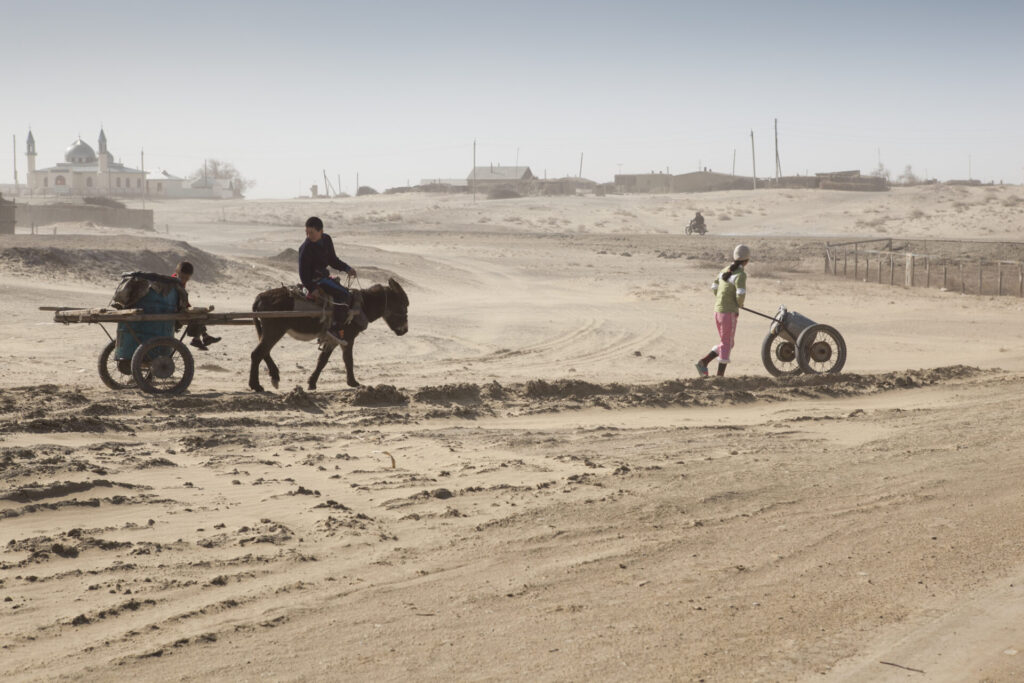Managing planetary health in an era of climate crisis
To understand how climate change influences public health, many clinicians believe a more comprehensive model is needed, one that no longer views health and environment as independent issues for national governments or global bodies like the United Nations to address separately. Instead, they say, we must consider the interplay of health, climate change, and the environment.
Many are calling it “planetary health” – viewing the heath of humans and of natural systems as inseparable.
“One billion children are at extremely high risk from the impacts of climate change. That’s about half the kids on the planet,” said Elizabeth Willetts, the Planetary Health Policy Director at the Harvard T.H. Chan School of Public Health, citing UNICEF data. “These risks arise from diverse ecological changes and adverse impacts to ecosystem services. We must look at these things together. Climate change causes flooding; flooding causes leaching of chemicals and pooling of unsafe water. This interconnectedness demands we move out of our silos.
“We need to think about the spectrum of environmental changes caused by climate change and how these impact children worldwide. We also know much of the knowledge of early changes to ecosystems and biodiversity will only be understood by engaging local communities, whom we must treat as experts in public health prevention and innovation.”
Willetts, who has more than 20 years’ experience mobilizing engagement on biodiversity, climate change, food systems and community health for marginalized populations – both abroad and in Massachusetts – led a research workshop this month hosted by the Salata Institute for Climate and Sustainability at Harvard University.
Environmental factors are believed to determine roughly a quarter of all deaths globally, a figure Willetts called an underestimate: “These numbers are raw, they’re crude, they’re hard to calculate. They also don’t account for sublethal issues – renal disease from pesticides, or mental health disorders from natural hazards and the trauma they cause, etc.”

Currently, issues covered by planetary health are handled by four different UN agencies with different mandates: The UN Framework Convention on Climate Change (UNFCCC) oversees international climate change negotiations, the WHO handles public health, the UN Environment Programme (UNEP) convenes governments on biodiversity and pollution, and several other agencies shape food governance.
Unpacking the policy structures and global decision-making architecture, Willetts illustrated the problem with case studies from southeast Asia, where she worked with the United Nations Economic and Social Commission for Asia and the Pacific (UNESCAP) to find synergies in international and domestic approaches to planetary health.
Beyond a lack of coordination at the national level in most cases, and a lack of structures working together internationally, she and her colleagues found an absence of literature examining and describing best practices in coordination.
“So that is one of the areas we’re focused on: How you create the platforms for countries to share best practices and look at resource efficiency and interrelated environment-health risks with a systems-thinking viewpoint.”
Looking ahead, there is good news.
For the first time, global bodies are beginning to consider elements of a planetary health system.
The UAE Framework for Global Climate Resilience adopted in late 2023 at COP28 discussed health and other related risks from climate change – “the first time health indicators are planted into the decision text under the UNFCCC,” she said.
“It also talked about health impacts from other areas that aren’t always grouped under the health umbrella, including water security and water-related hazards, adequate food and nutrition, and preservation and regeneration of nature,” Willetts said, listing global meetings this year that are expected to integrate concerns on climate change, environment, and health: the UN Environment Assembly 6, the World Health Assembly 77, and the Convention on Biological Diversity COP16.
“As much as we may feel pessimistic about progress in global governance, these forums have an impact on the structure and framing of what happens at the national level,” she explained. “This is a very comprehensive landscape compared to where we have been only recently.”









